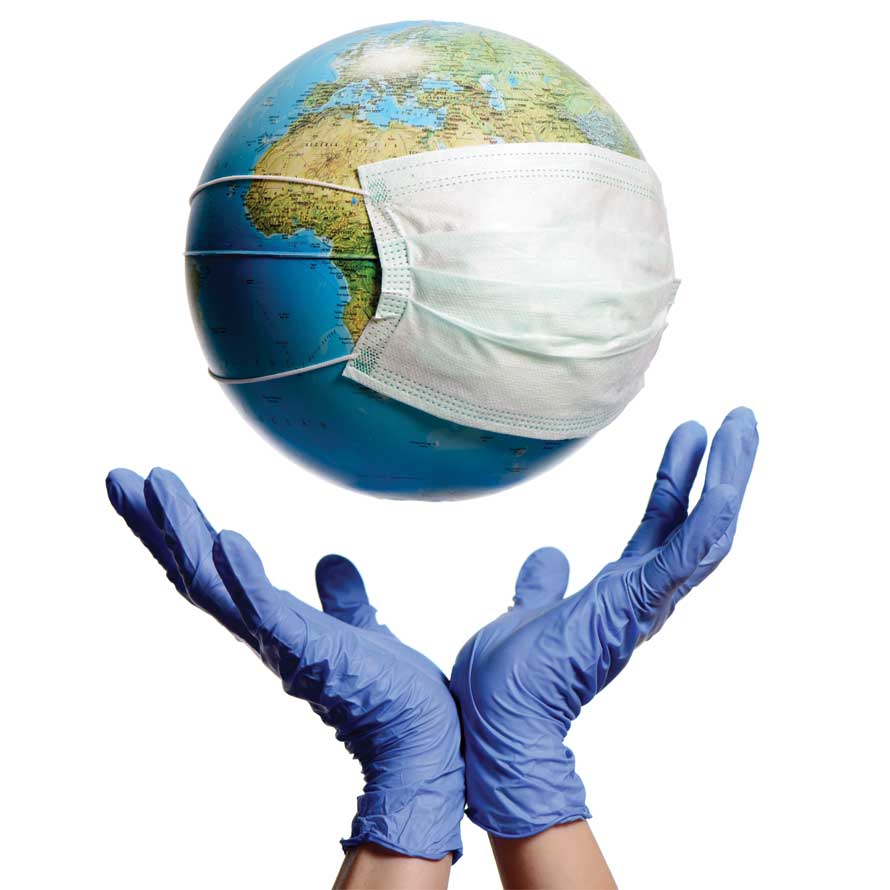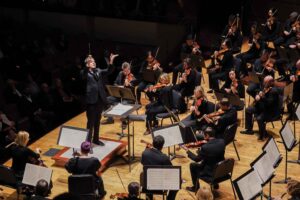By Joey Kennedy
I’m an optimist. My curious nature ensures that. If I were a pessimist, I certainly wouldn’t want to know more stuff. I wouldn’t believe in life-long learning. I wouldn’t plan ahead.
Especially in these times. The end times?
No, I’m not making an end–of–the–world prophecy. I’m no prophet—true, false, or whatever. Still, I do think it’s the end of the world as we know it (thank you, R.E.M.).
It’s been the end of the world as we know it for a longer time now than most of us will admit.
Thunderstorms are worse and more frequent, as are tornadoes and hurricanes and snowstorms and droughts. Wildfires, always common, are even more common.
Plagues have been in the world since the world had humans (and animals) to plague. New plagues are finding their way from exotic animal species to humans, then spreading, well, like one of those wildfires. The current novel coronavirus (COVID-19) pandemic has killed thousands and has disrupted life for just about every soul on Earth.
No telling how long the disease has been in Alabama. Even though the coronavirus’ first U.S. case was confirmed way back on Jan. 21, by the time the bug had worked its way to Alabama nearly two months later, the state (and nation) still wasn’t prepared to test people with symptoms. Alabama’s first case was reported, eerily enough, on Friday, March 13.
Naturally, being the most populated area in the state, the Birmingham-Hoover Metropolitan Statistical Area is at the greatest risk in Alabama of having lots of cases. Over that fast first weekend, 12 cases had been confirmed and the disease took hold.
Still, Birmingham is lucky to have an extensive medical care infrastructure and should be able to absorb the most critical cases.
Nursing and retirement homes were shut to visitors, which makes sense because our older population is most vulnerable to the virus’ life–ending respiratory complications.
Everybody’s lives have been disrupted. That’s because to help contain the virus, most of us are practicing distancing ourselves from others, in some cases even self-isolating.
Public schools and universities were closed; on the college and university level, students and faculty continued classes after extended spring breaks by pivoting to online.
Suddenly, we are in a place we’ve never been before, and it’s not a fun place, either.
March Madness and every other sporting event, including the Masters, were canceled. NBA, NHL, pro soccer, and even entertainment events ceased to exist. Broadway theaters are shuttered.
As the coronavirus marched through Alabama, it was reported that the state experienced it’s rainiest winter (December-February) on record. In just February, the state had an average of 24.22 inches of rain, and that is 8.70 inches above average. Data goes back to 1895.
This is climate change at work.
Sure, we’ve seen storms our entire lives, just not as so-often severe as we see today. A category 5 hurricane, once rare, is seen on a regular basis.
There was a time when I looked forward to the adventure of storms, especially hurricanes. I grew up on the Gulf Coast, in southeastern Texas and southern Louisiana. I’ve experienced many storms, and I’ve covered many as a journalist.
The adventure of storms ended for me when Hurricane Katrina devastated southern Louisiana and Mississippi. Two weeks after Katrina, I wrote about my memory of a particular storm in a newspaper column: “I loved storms — the lightning, the thunder, the wind, even the rain — and in 1961, Hurricane Carla was the biggest storm yet for me. Like Hurricane Katrina, Carla was a monster, too, at one time a Category 5, and she was headed for us in Texas. We lived in a small town between Beaumont and Houston, a few miles inland from High Island. As the storm started to come in and the winds picked up, my mom sent me outside to chase down a plastic clothes basket that somehow had escaped and was tumbling across the front yard. The basket eluded me until it got caught on the barbed-wire fence that separated our lot from the cow pasture next door. I grabbed the basket and, now drenched but loving every second of it, ran back inside, making my clearly reckless mother awfully proud.”
The combinations of awful weather and even more awful diseases underscore that the world as we knew it is done.
That sounds depressing, yes, but it’s not pessimistic. That just means we have to adjust, to keep changing, knowing that we may have to disrupt our lives even more regularly than we used to.
What’s as scary as a bad hurricane or wildfire or disease outbreak is that our leadership, on both the national and state levels, is unprepared to manage such change. We need leadership that doesn’t simply react to disasters or epidemics, but who see what’s coming and responds proactively.
We know we’re going to have hurricanes. We know we’re going to have wildfires. We know tornadoes are coming year-round now. We know when a new strain of a deadly virus takes hold in China in late December-early January that it’ll likely break out and come get us.
We know this. So we should prepare. Better safe than sorry. Today, though, we’re sorry.
A wall won’t stop infections from border-hopping. Ignoring a virus in China and continuing doing the same as usual is reckless.
So from now on, we need act quickly. Decisively. Intentionally. Humanely. We lost our advantage to intervene as the coronavirus in far-away China grew into a pandemic. We twiddled our thumbs, then looked like a deer caught in the headlights of a coming 18-wheeler.
So, yes, it’s the end of the world as we know it. But, no, I don’t feel fine. Optimistic, but not fine.



